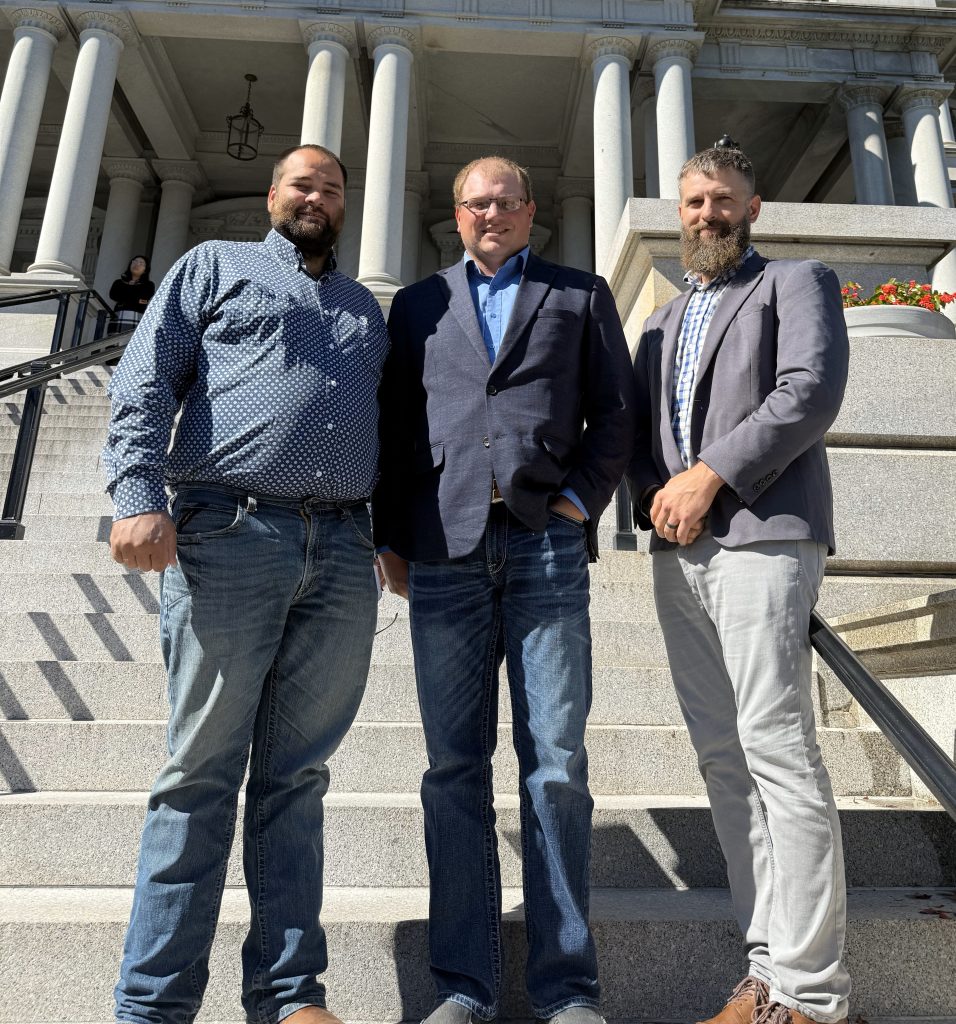White House Invites South Dakota Rancher & Two Farmers to Give Input
By Lura Roti

It’s harvest in South Dakota and De Smet farmer Rob Lee is behind getting soybeans out of the field because he accepted an invitation to the White House.
“It was the worst timing, but when you have the opportunity to sit in a room and meet with the U.S. Secretary of Agriculture – in the White House – you don’t say no,” said Lee, who farms with his wife Darcie, and their three young children: Everett, Rosie and Esme.
Lee is one of three young South Dakota agriculture producers invited to the White House to meet with U.S. Secretary of Agriculture and other top U.S. Department of Agriculture officials this week (Tuesday, October 8) as part of the Farmers and Ranchers In Action event hosted by the Biden/Harris Administration.
Ipswich crop and cattle producer, Lance Perrion and Harding County rancher, Jason Latham were also invited.
“They wanted to have a conversation with us about what is working and what is not working and what needs to change,” explained Latham, a fourth-generation cattleman who ranches with his parents, Darwin and Kay, his wife, Kaeloni and their young sons Jaydon, Jarrett and James.
Latham said the setting was intimate – only 75 producers from across the U.S. were invited. And the conversations were candid.
“You could tell they were invested in the conversation because they took their own notes. And if they didn’t understand something we were talking about, they asked follow-up questions,” Latham said. “It was an opportunity to help make meaningful change, talking face-to-face with the officials who draft the rules.”
Latham was specifically interested in what Vilsack had to say about the USDA and Department of Justice’s on-going investigation into consolidation among meat packers. “I was happy to learn about the steps they are taking to more actively enforce existing laws addressing monopolies.”
Consolidation is not isolated to the meat packers, said Perrion. And he was interested to learn what the USDA and Administration were doing about holding other sectors of corporate agriculture accountable. “I was happy to hear that the Secretary of Agriculture understood the issues we face with GMO (genetically modified organism) seeds,” Perrion said.
Perrion explained that because corporations who own the patent on RoundUp-resistant seeds, will not release the technology, even though the patent term has expired, seed is expensive and new technologies are not emerging to update or replace the weed-controlling technology. “As farmers we are stuck,” Perrion said. “We’ve now got 15 RoundUp resistant weeds we can’t control – waterhemp is running wild, kochia is running wild – and we don’t have new products to control them because like humans and antibiotics, these weeds are now resistant.”
Change for the better
Like Lee, Perrion is in the midst of harvest. But he didn’t hesitate when he was asked to participate.
“We got to bring our issues and ideas to the decision makers and have a conversation,” explained Perrion who farms with his wife, Sarah and their three young daughters, Bexley, Haddie and Elliott. “You got to meet with these people when you have the opportunity. Building relationships is how we get change for the better.”
The White House connected with Perrion, Latham and Lee through National Farmers Union. The White House reached out to the organization when they were planning the event. National Farmers Union then reached out to South Dakota Farmers Union. The three young producers are active members. And they have all traveled to D.C. in the past as part of a large annual Fly-In organized by National Farmers Union.
Comparing this visit to USDA meetings from the past, Lee was impressed with the Administration’s efforts. “I appreciate their willingness to work with us on issues important to our future. I was here in 2018 and listened to then Secretary of Agriculture, Sonny Perdue tell us, “get big or get out,’” Lee said. “As a family farmer, that is not a hopeful message. I think all farmers and ranchers are trying to build something for the future. Will my kids want to come back and farm? I don’t know. But if they want to, I hope farming is still a noble pursuit that can also be profitable.”

